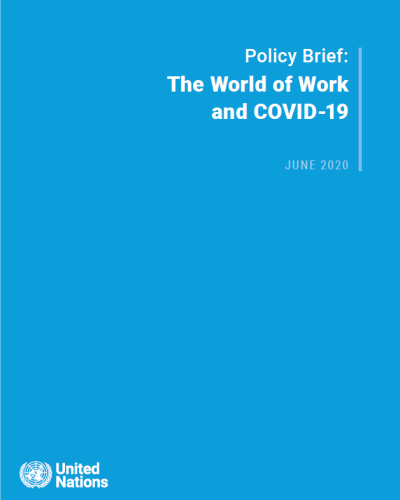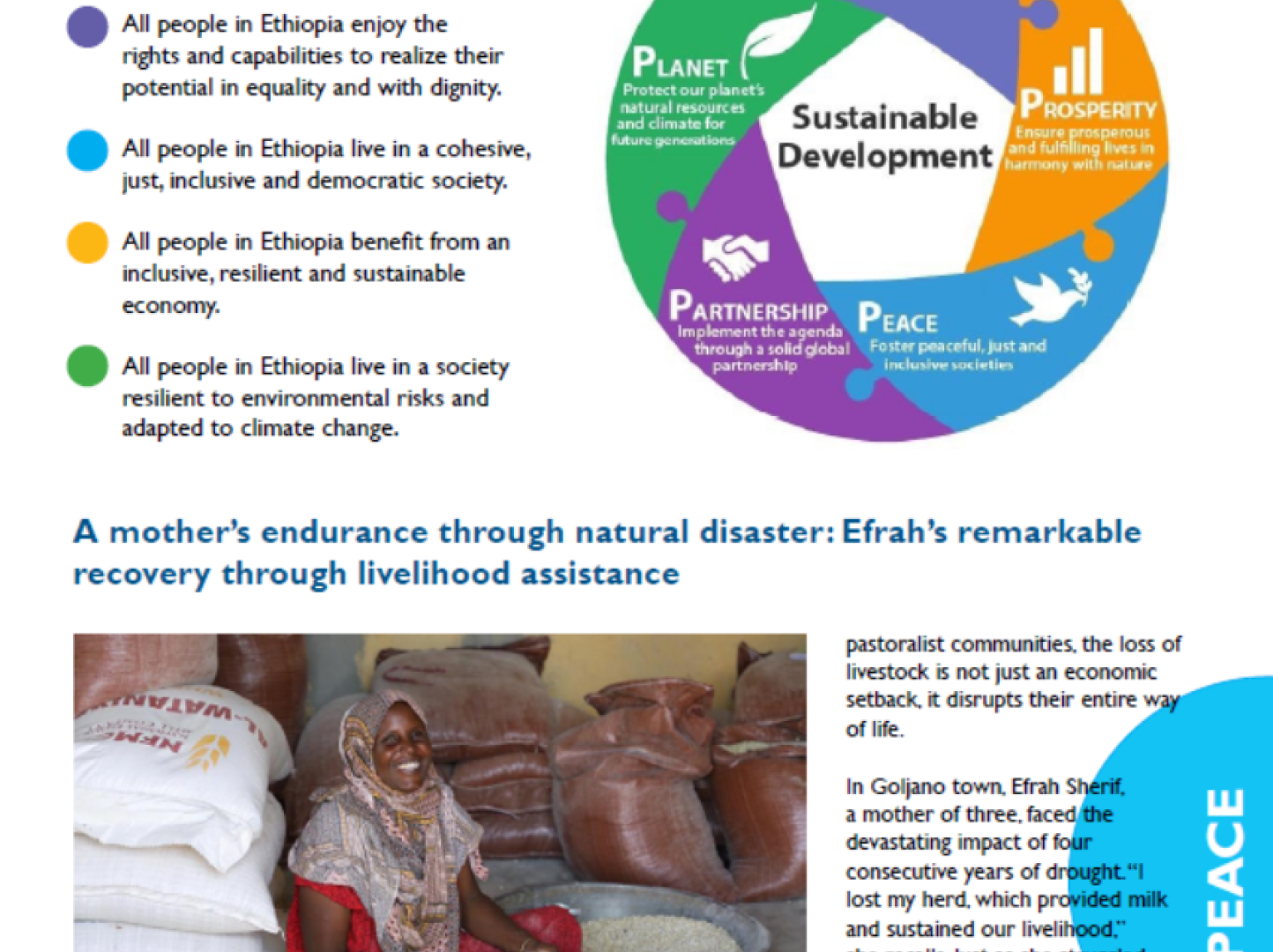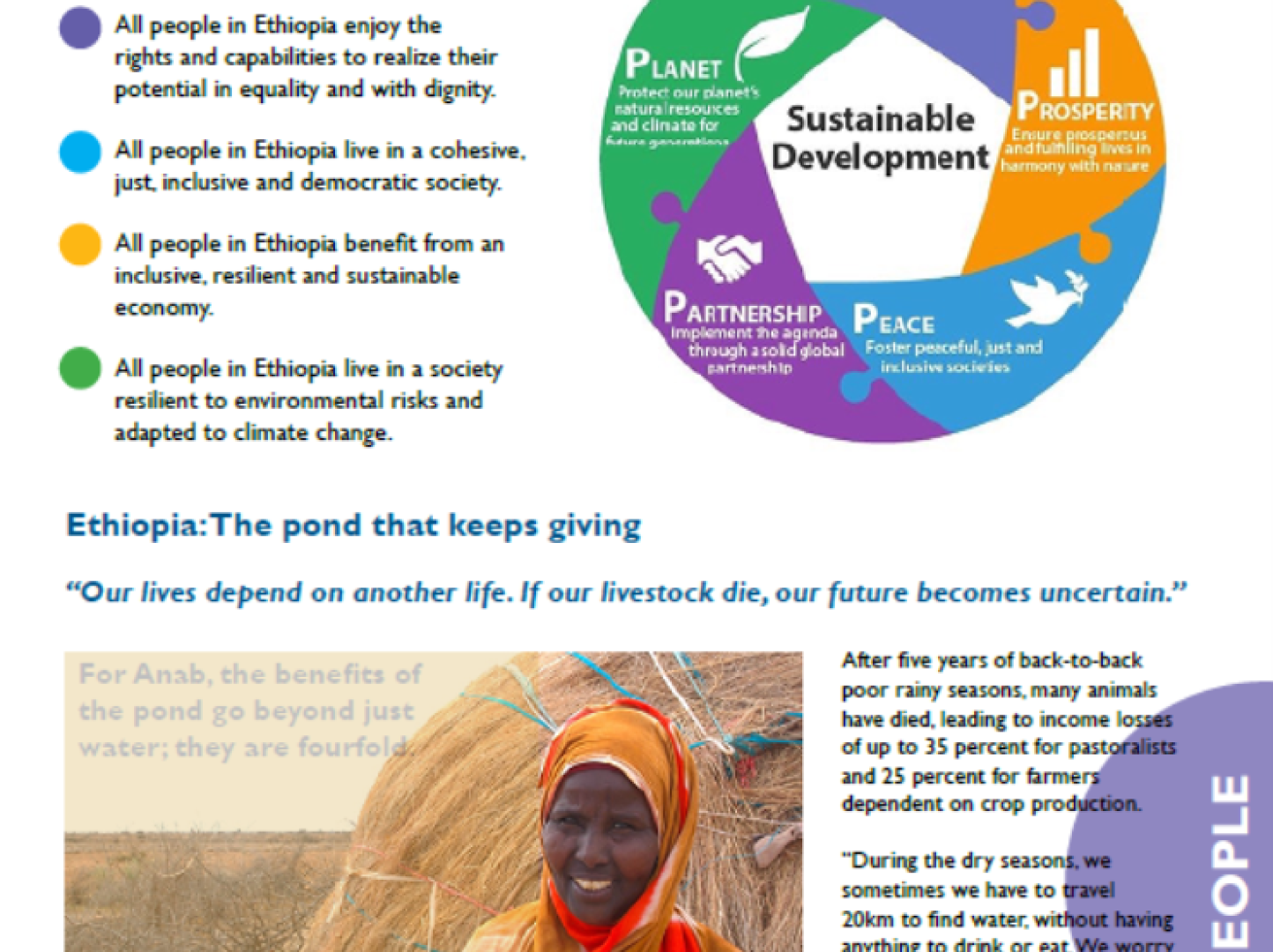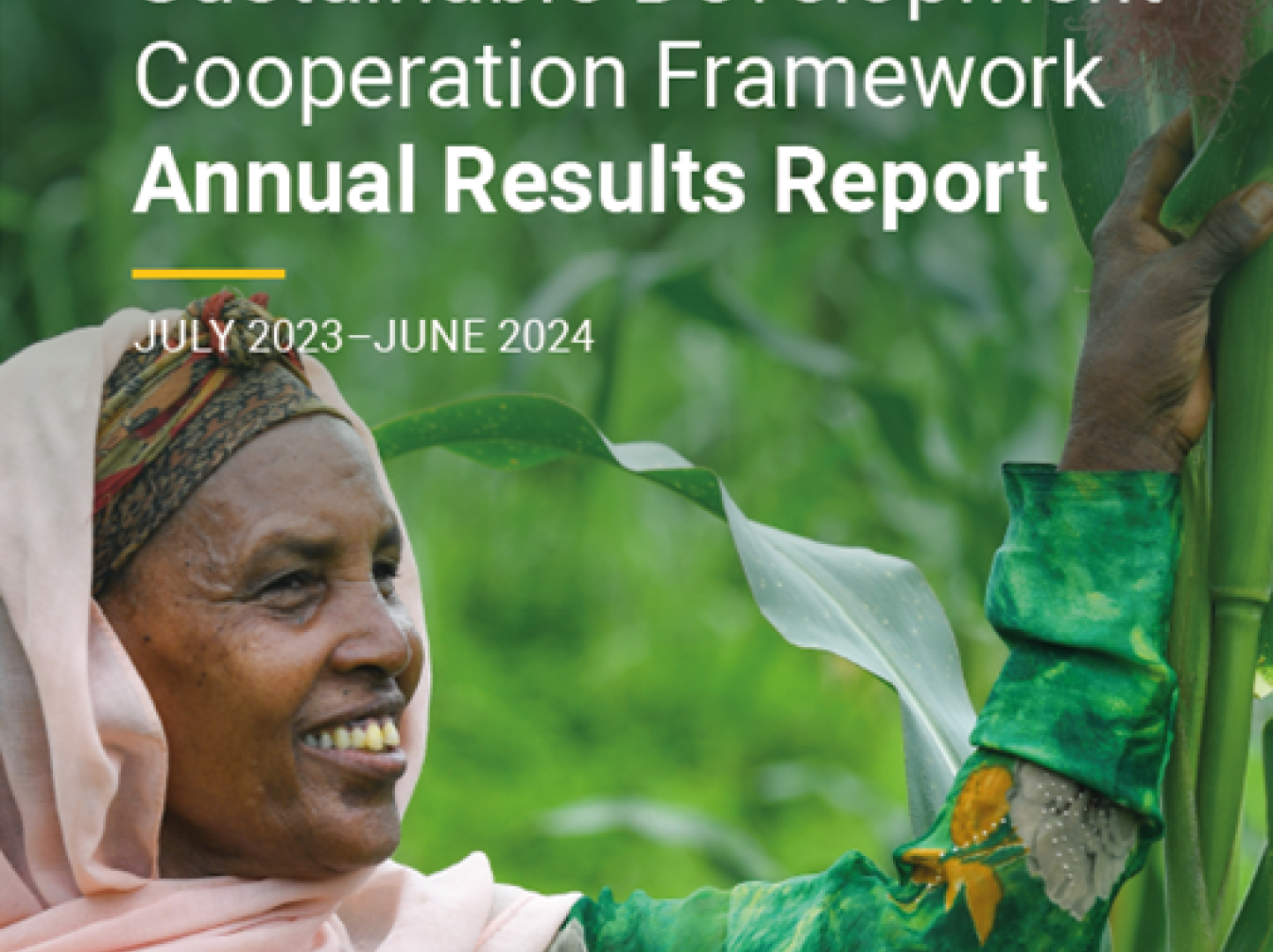Policy Brief: The Word of Work and COVID-19

The COVID-19 pandemic has turned the world of work upside down. It is having a dramatic effect on the jobs, livelihoods and well-being of workers and their families and on enterprises across the globe, particularly the small and medium sized. While certain sectors and industries have successfully moved online, pointing the way towards exciting innovations in the world of work, millions of workers have lost their livelihoods and many more – especially women who are concentrated in highly exposed sectors – remain at risk. As with so many aspects of this pandemic, the impacts are falling disproportionately on those who were already in precarious circumstances and who can least absorb the additional blow.
Measures necessary to mitigate the impacts of the COVID-19 virus have had significant knock-on effects on societies and economies. By mid-May 94 percent of the world’s workers were living in countries with some type of workplace closure measures in place. Massive losses in working hours which are equivalent to 305 million full-time jobs are predicted for the 2nd quarter 2020, while 38 percent of the workforce – some 1.25 billion workers – is employed in high-risk sectors.
The impacts of these developments vary considerably between groups of people and countries, depending to a large extent on pre-existing inequalities and government interventions. Those toiling in the informal economy – often without rights at work and social protections – suffered a sixty percent decline in earnings in the first month of the crisis alone. Young people account for more than four in ten employed globally in hard-hit sectors. Combined with disruptions in education and training, this places them at risk of becoming a ‘lockdown generation’ that will carry the impacts of this crisis with them for a long time. Women are disproportionately employed in critically affected sectors such as service, hospitality, tourism and are also impacted by the shifting of economic activity into the domestic sphere, where they carry the majority of increasing levels of unpaid care work. Small and medium-sized enterprises – the engine of the global economy – are suffering immensely and many may not recover. As is the case for the entire crisis, those living in developing countries and fragile contexts face the most dramatic risks or have least resilience.
The near-term prognosis is worrisome. Many of those people who have lost their jobs and their livelihoods in recent months will not be able to re-enter labour markets any time soon. This is particularly the case for women, who may be disproportionately amongst the first out and the last to return, due to gender discrimination and precarious working conditions, including low wages, increased care burdens and opportunity costs of working, especially given the gender pay gap, as well as existing obstacles to the formal economy. Persons with disabilities, already facing exclusion in employment, are also more likely to experience greater difficulties returning to work during recovery.
The long-term impacts are also of concern. These challenges will have a severe impact on efforts to reduce poverty and inequality, putting SDG achievement further at risk. They also risk adding fuel to an already burning fire of discontent and anxiety in the world of work. Despite its promises, globalization – perhaps the most defining feature of the world economy over the last several decades - and has not always benefited all people and economies. In many countries, income inequality has been rising steeply since the 1980s. The global labour income share was 51.4 percent in 2017, down from 53.7 percent in 2014, while the remaining capital share increased. Before the crisis hit, 7.1% of the world’s workers were living in extreme poverty. Women were almost half as likely to be employed as men and were overrepresented in low-paid, unprotected jobs. 267 million young people were not in employment, education or training. 107 countries excluded workers from the right to establish or join a trade union.
At the same time, the current crisis shows how much economies and labour markets depend on each other. This interdependence should be redefined going forward to generate a more inclusive and sustainable world for all.
COVID-19 also accelerated certain trends, particularly digitization and the move to remote work, in some cases auguring a promising future of greater flexibility and sustainability. But fears also grew regarding the downsides of imminent effects of new technologies on the future of work, as new technological innovations underpinning the Fourth Industrial Revolution, such as network technology, Big Data, 3-D printing, artificial intelligence and robotics, transform the very nature of work and risk deepening gaps and inequalities.
In the face of all these trends, there is a risk that massive unemployment and loss of income from COVID-19 could further erode social cohesion and destabilize countries in both the North and the South, socially, politically and economically.





